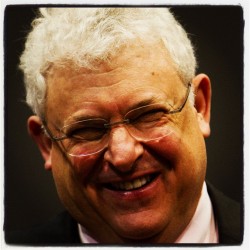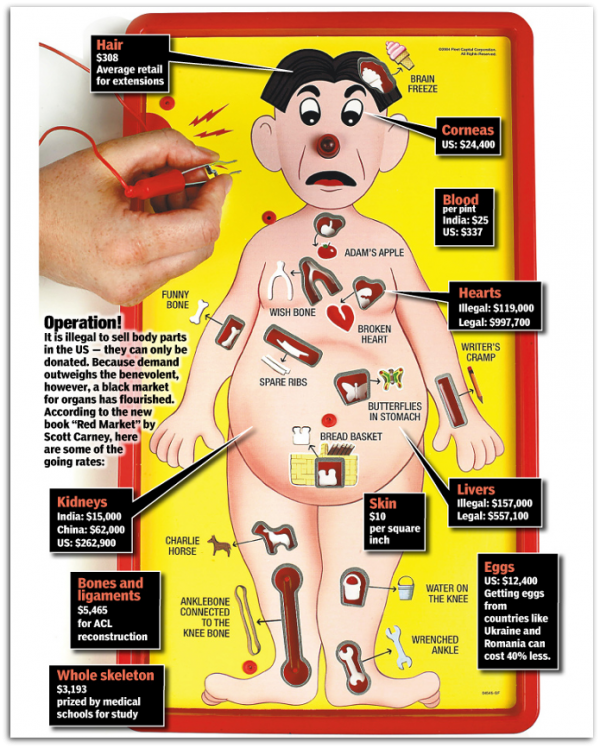NEWSWORKS: It wasn’t that long ago that the term “bioethics” wasn’t well known. But more than any other American scientist, Dr. Arthur Caplan has been credited for bringing this somewhat abstract intersection of philosophy and medicine into to the public discourse. After founding the University of Pennsylvania’s Center for Bioethics, Caplan is now taking his expertise to New York University. Caplan’s office at 36th and Market streets looks eerily neat: no piles of folders in corners, only a few book in shelves that were once filled to capacity, no photos or awards. It’s all packed away. All this calmness is a stark contrast to the energetic and passionate Caplan. A whole universe of ideas and questions flows effortlessly out of his mouth. It’s this ability to bring clarity to controversial issues that has made him the voice of bioethics in the media. “One of the things I’ve always felt about bioethics is that it should be an academic enterprise,” he said, “but it should also be a public dialogue. Most of the issues that bioethics addresses influence and  touch peoples’ lives either when they vote, when they’re a patient, or when they’re trying to figure out why things cost so much in health care. MORE
touch peoples’ lives either when they vote, when they’re a patient, or when they’re trying to figure out why things cost so much in health care. MORE
RELATED: Caplan is the author or editor of twenty-five books and over 500 papers in refereed journals of medicine, science, philosophy, bioethics and health policy. He has served on a number of national and international committees including as the Chair National Cancer Institute Biobanking Ethics Working Group, the Chair of the Advisory Committee to the United Nations on Human Cloning, the Chair of the Advisory Committee to the Department of Health and Human Services on Blood Safety and Availability, a member of the Presidential Advisory Committee on Gulf War Illnesses, the special advisory committee to the International Olympic Committee on genetics and gene therapy, the ethics committee of the American Society of Gene Therapy, and the special advisory panel to the National Institute of Mental Health on human experimentation on vulnerable subjects. He has consulted with many corporations, not-for-profit organizations and consumer organizations. He is a member of the board of directors of The Keystone Center, the National Center for Policy Research on Women and Families, Octagon, The Franklin Institute, Iron Disorders Foundation and the National Disease Research Interchange. He chaired the advisory committee on bioethics at Glaxo from 2005-8. He is on the food advisory panel for Edelman public relations and co-director of a United Nations/Council of Europe Study on organ trafficking. He writes a regular column on bioethics for MSNBC.com.[2] He is a frequent guest and commentator on various media outlets. MORE
RELATED: Despite the definitive debunking of a 1998 research paper linking vaccines and Autism that triggered a national anti-vaccination movement, many parents still won’t vaccinate their children, even as the rate of vaccine-preventable diseases like measles and whooping cough continues to rise. American’s mainstream media shares much of the blame for this, according to University of Pennsylvania bioethicist Art Caplan. He’s director of the University’s Center for Bioethics and a nationally-renowned authority on the moral dilemmas in medicine and health care delivery. Speaking at a recent Global Vaccines 202X symposiumat the Franklin Institute, Caplan charged that mainstream U.S. media companies continue to “promote fringe and fraudulent views about vaccine dangers,” because their editors and producers treat the facts of vaccine safety “as if they were still in dispute, fostering fear and confusion on the part of the public.” “The media has goofed up this story and has done a very poor job,” said Caplan. “It’s as if we were having a debate about the Holocaust and demand that we always have a Holocaust denier to represent the ‘other’ side of the argument.” MORE
 ART CAPLAN: Vaccines were the biggest losers in Monday’s GOP presidential candidate’s debate, specifically those that are intended to prevent cervical cancer. Republican hopefuls Michele Bachmann of Minnesota and Rick Santorum of Pennsylvania piled on Texas Gov. Rick Perry about the alleged horror of the government doing what it can to help vaccinate young women. The opponents of front-runner Perry think they have traction on the issue of whether he should have issued an executive order in 2007 mandating that girls entering sixth grade in Texas be vaccinated against cervical cancer. Bachmann, whose presidential dreams hinge on knocking off Perry, has been talking for the past few days about Perry’s irresponsibility in requiring the vaccine: “To have innocent little 12-year-old girls be forced to have a government injection …is just flat out wrong,” she said during the debate. On NBC’s TODAY Show Tuesday Bachmann said she was approached by a woman after the debate who said her daughter was harmed by the vaccine. “She told me that her little daughter took that vaccine, that injection, and she suffered from mental retardation thereafter,” Bachmann told TODAY. Bachmann insists that the only reason Perry would have ordered girls to get this dangerous vaccine is that he was in the pocket of the vaccine’s manufacturer, Merck. Perry did get a $5,000 campaign donation from Merck. But, he responded to Bachmann’s charge of ‘crony capitalism’ by saying that he certainly cannot be bought for a mere $5,000. How much it takes to buy Perry is a different issue. I simply want to rescue the HPV vaccine from harm at the hands of politicians willing to hurt girls to gain political advantage. MORE
ART CAPLAN: Vaccines were the biggest losers in Monday’s GOP presidential candidate’s debate, specifically those that are intended to prevent cervical cancer. Republican hopefuls Michele Bachmann of Minnesota and Rick Santorum of Pennsylvania piled on Texas Gov. Rick Perry about the alleged horror of the government doing what it can to help vaccinate young women. The opponents of front-runner Perry think they have traction on the issue of whether he should have issued an executive order in 2007 mandating that girls entering sixth grade in Texas be vaccinated against cervical cancer. Bachmann, whose presidential dreams hinge on knocking off Perry, has been talking for the past few days about Perry’s irresponsibility in requiring the vaccine: “To have innocent little 12-year-old girls be forced to have a government injection …is just flat out wrong,” she said during the debate. On NBC’s TODAY Show Tuesday Bachmann said she was approached by a woman after the debate who said her daughter was harmed by the vaccine. “She told me that her little daughter took that vaccine, that injection, and she suffered from mental retardation thereafter,” Bachmann told TODAY. Bachmann insists that the only reason Perry would have ordered girls to get this dangerous vaccine is that he was in the pocket of the vaccine’s manufacturer, Merck. Perry did get a $5,000 campaign donation from Merck. But, he responded to Bachmann’s charge of ‘crony capitalism’ by saying that he certainly cannot be bought for a mere $5,000. How much it takes to buy Perry is a different issue. I simply want to rescue the HPV vaccine from harm at the hands of politicians willing to hurt girls to gain political advantage. MORE

